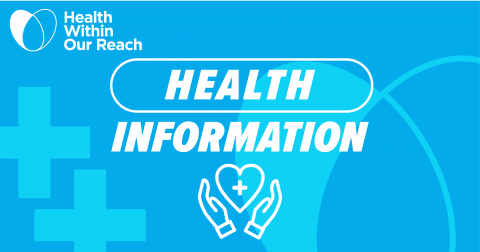July 10, 2023
Mental health in the United States: What you need to know.

Three years after the start of the COVID-19 pandemic, we continue to learn about this disease and about all the tools available to reduce infections and reduce the negative effects on people's health.
Physical symptoms were part of the first concerns to identify infections, and the effects on the body in general, and some organs in particular (lungs, heart, brain, liver, pancreas, among others).
However, the experience of going through the pandemic has left us with sufferings and knowledge that go beyond the physical symptoms. We have information on this disease and subsequent symptoms that could be related, including neurological and emotional affectations.
What does "mental health" mean?
Mental health includes emotional, psychological and social behavior. It can affect how you think, feel and act. It influences how you handle stress, how you relate to other people and how you make decisions, whether important or everyday. Mental health is very important at any stage of life: your thoughts, mood and behavior can be affected and therefore also affect your loved ones, your workspace and your community.
What are the mental health problems associated with COVID-19?
The most recurrent are the following:
Anxiety
Depression
Sleep disturbances
Appetite disturbances
Increased consumption of alcohol and tobacco
Post-traumatic stress from having the disease, or caring for a person with COVID-19
Domestic violence
The mourning for the loss of loved ones, the anguish of suffering from the disease, or having a sick family member, the economic crisis that caused loss of jobs and livelihoods, isolation, remote work, fear and uncertainty, were conditions that aggravated the impacts on people's mental health.
In addition, there are studies that point to other social determinants: people and families in homes where English is not spoken, or where they are Hispanic or Afro-American faced higher levels of infections. Families dealt with grief, death, and mourning. National Minority Mental Health Awareness Month is celebrated every July in the United States to raise awareness of the issues racial and ethnic minority communities face in addressing their mental health.
These problems may include lack of health insurance, lack of racial and ethnic diversity among mental health care providers, lack of culturally competent providers, lack of financial resources, and discrimination.
What resources are available to you?
How Right Now: is a tool from the Centers for Disease Control and Prevention (CDC) that helps you identify how you feel, what you can do, and what resources have worked for others.
The National Institute of Mental Health (NIMH) provides information and a telephone hotline. You can also find materials to learn more about mental health or call 1-866-615-6464 for information in Spanish.
National Minority Mental Health Awareness Month is celebrated during the month of July.
- The Department of Health and Human Services (HHS) Office of Minority Health (OMH) shares messages, tools, and resources.
- Mental Health America also commemorates with resources, currently available only in English.
Remember that you have the right to a safe and healthy workplace. This right protects you to push for improvements, so you can conduct your job in an environment that safeguards your mental health as well. CDC shares these suggestions. Also, the Occupational Safety and Health Administration (OSHA) makes this page available to you.
Protect yourself! It is not necessary to face these problems alone. Asking for help makes you strong and fuels your hope.
